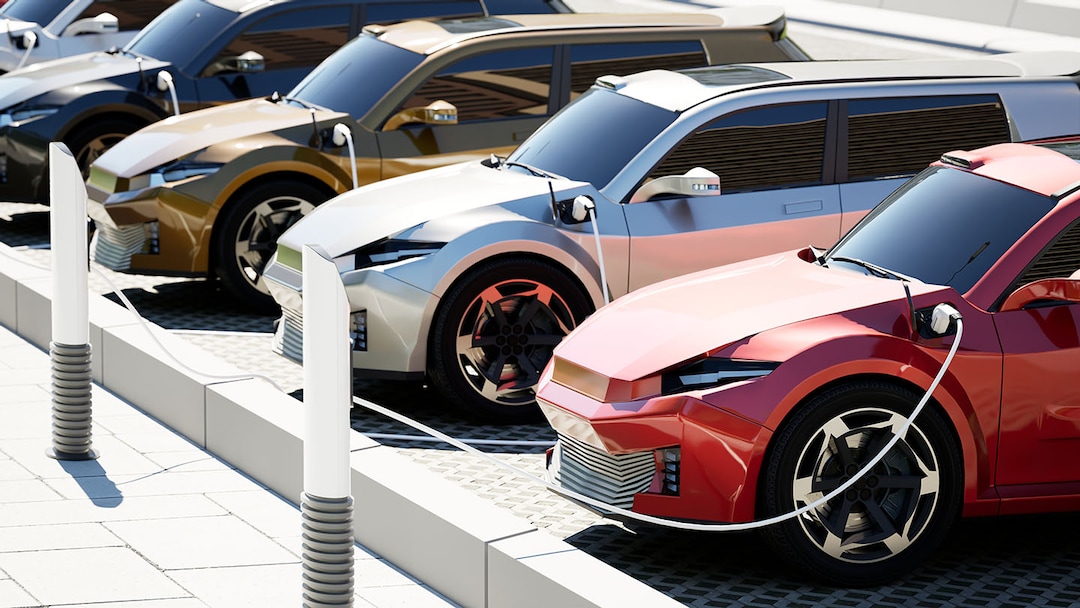

Electric cars are becoming an increasingly popular vehicular option, but there is a world of misconceptions and myths revolving around these vehicles. With so much information available, it’s easy to become entangled in a false web, so it’s important to distinguish reality from fiction before choosing whether you wish to buy an EV.
Debunking 7 Common Misconceptions About Electric Cars
1. Electric cars have a limited range and can’t handle long journeys:
Although the range of older electric car models may have been restricted, this issue has been resolved by substantial developments in battery technology. With ease, modern electric vehicles (EVs) such as the ë-C3 Citroën electric car can cover approximately 320 kilometres on a single charge.
Furthermore, the infrastructure for charging is always growing, with fast-charging stations appearing more frequently along major roads. This ensures EVs can easily meet most daily driving needs, including weekend getaways. It’s also worth noting that the majority of our daily travels fall well within the average EV’s range.
2. Electric cars are too slow and lack power:
Electric vehicles, like the Citroën ë-C3, can deliver an instant torque of up to 143 NM, ensuring a smooth and unexpectedly energetic driving experience. These vehicles often accelerate faster than their petrol-powered counterparts, resulting in an exhilarating ride. While their quiet operation can be deceiving, electric vehicles are very powerful in terms of speed.
3. Electric car batteries have a short lifespan:
These days, EV batteries are made to survive the vehicle’s lifetime. For instance, Citroën ë-C3 offers a battery life of up to 7 years or 140000 kilometres. This impressive battery lifespan easily competes with traditional petrol cars in terms of financial sustainability. Even if a battery replacement becomes necessary, costs have been decreasing, and ongoing advancements in battery technology promise extended longevity and more affordable prices over time, resulting in significant long-term savings.
4. Electric cars are unsafe due to battery fires:
When compared to fuel-powered cars, electric vehicles experience significantly fewer and rare instances of fires. Modern EVs incorporate thermal cooling systems and stringent safety measures to prevent battery overheating. Moreover, electric vehicles eliminate the explosion risk associated with petrol-powered vehicles, primarily due to the absence of flammable fuel substances.
5. EVs are not practical because there aren’t enough charging stations available:
Charging stations, particularly fast-charging ones, are increasingly abundant. Nowadays, many public areas, businesses, and retail centres are equipped with these stations. Additionally, there are numerous options available for home charging, allowing you to conveniently “refuel” your car overnight. While some may worry about range anxiety, the infrastructure for EV charging is continually evolving to meet growing demand.
The Citroën ë-C3 electric car includes a portable charging compatible with a standard 15 AMP household socket, offering a convenient option for home charging. Moreover, its 100% DC fast charging capability allows the car to charge from 10% to 80% in only 57 minutes.
6. Electric cars are expensive to maintain:
Compared to fuel-powered cars, electric vehicles have fewer moving components, which could translate to lower maintenance expenses. Tasks such as spark plug replacements and oil changes, common in petrol engines, are unnecessary. While monitoring battery health is important, overall, EVs can offer a more cost-effective maintenance experience throughout their lifespan.
7. Electric vehicles are worse for the environment than petrol cars:
The environmental effect of producing batteries for electric vehicles may be slightly higher than that of a petrol-powered vehicle, but overall, the emissions of an electric vehicle are far lower. Considering the cleaner power source that is utilised to charge the vehicle (particularly with the growing use of renewable energy sources), electric vehicles have a lower carbon footprint and produce less air pollution in urban areas.
Conclusion
Electric cars are a rapidly improving technology that could completely change how people travel. With so much information available, it’s crucial to discern fact from fiction to make informed decisions. By debunking common myths, we’ve highlighted the advantages and important considerations for electric car drivers.
Apart from the ë-C3, Citroën offers a range of top vehicles, including the C5 Aircross, as well as the upcoming SUV coupe Citroën Basalt Vision. More information such as the Citroën Basalt SUV Coupe price will be revealed in the coming months. So, stay tuned!




